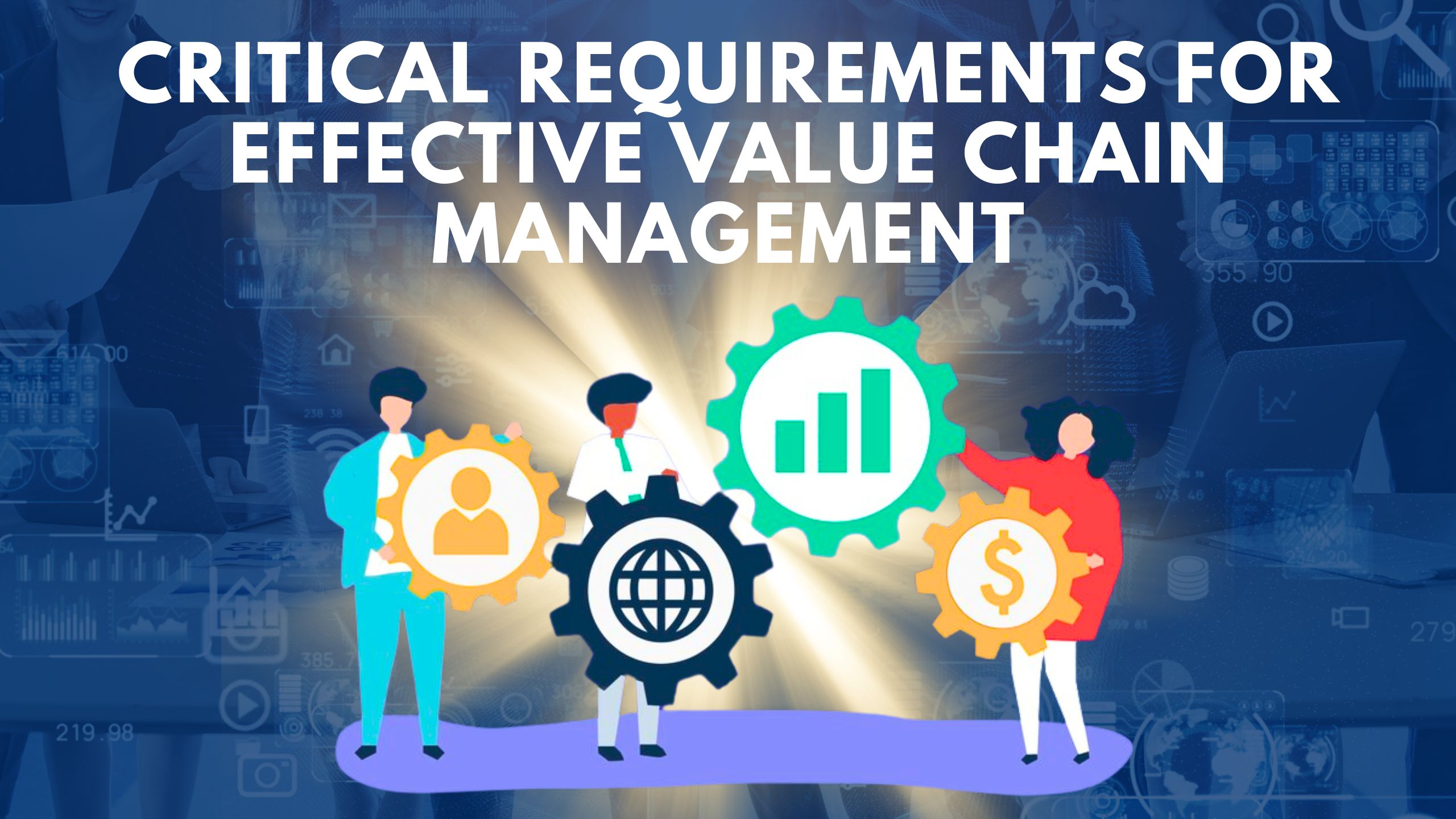Critical Requirements for Effective Value Chain Management


Critical Requirements for Effective Value Chain Management
Effective value chain management is essential for businesses seeking to optimize processes and deliver maximum value to customers. In this in-depth exploration, we examine the critical requirements for successful value chain management and highlight relevant SaaS products that play a pivotal role in meeting these requirements.
1. Seamless Integration Across the Supply Chain
Achieving a seamless flow of information across the entire supply chain is paramount. SAP Integrated Business Planning (IBP) is a comprehensive solution that facilitates real-time collaboration, enabling businesses to integrate planning processes from end to end.
2. Data Visibility and Analytics for Informed Decision-Making
Data visibility and analytics are key components of effective value chain management. Tableau empowers organizations with robust data visualization and analytics tools, allowing for informed decision-making at every stage of the value chain.
3. Collaboration and Communication Tools
Effective communication and collaboration are critical for streamlining value chain processes. Slack provides a centralized platform for teams to communicate, share updates, and collaborate in real-time, fostering efficiency and reducing communication gaps.
4. Supply Chain Planning and Optimization
Optimizing the supply chain requires advanced planning tools. Blue Yonder (formerly JDA) offers end-to-end supply chain planning and execution solutions, ensuring businesses can meet demand, minimize costs, and enhance overall supply chain efficiency.
5. Inventory Management Solutions
Accurate inventory management is crucial for preventing stockouts and overstock situations. Quickbooks provides a cloud-based inventory management platform, offering real-time insights into stock levels, order fulfillment, and inventory performance.
What is Required for Successful Value Chain Management?
The query “What is required for successful value chain management?” encompasses the need for seamless integration, data visibility, collaboration tools, supply chain planning, and inventory management. Meeting these requirements ensures a well-coordinated and efficient value chain.
Conclusion
Successful value chain management requires a strategic combination of seamless integration, data visibility, collaboration tools, supply chain planning, and inventory management. Businesses that invest in the right tools and technologies can unlock operational efficiencies and deliver enhanced value to their customers.
Unlock Exclusive SaaS Deals and Simplify Your Subscription Stack with Subscribed.fyi
At Subscribed.fyi, we strive to be the go-to solution for freelancers and small teams managing their SaaS stack. Sign up for free today to unlock secret deals, saving over $100,000 per year on 100+ SaaS tools. Our platform empowers users to effortlessly manage subscriptions, compare tools, and make informed decisions.
Sign up for free today at Subscribed.fyi








